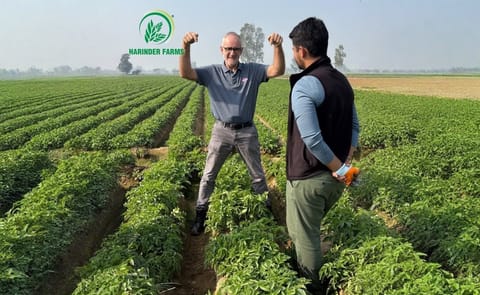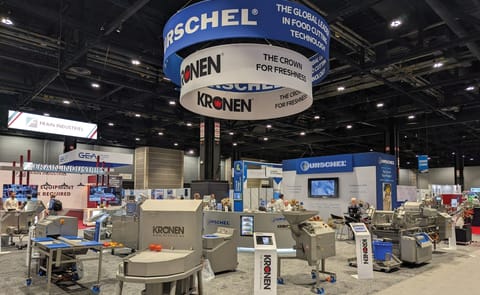A key reason why British seed potatoes retain their high-health status is the stringent Seed Potato Classification Scheme (SPCS) imposed upon the entire seed production chain, right up to the point of sale to the seed customers and growers.
Brexit may present challenges to Scottish Seed Potato Exporters

Seed potato growers for the United Kingdom who have been confident that crucial trade with Egypt and other non-EU markets would not be disrupted by Brexit may be in for a shock.
According to Peter Hardwick, the export chief of levy body AHDB, securing the future of exports such as potatoes and malting barley to third countries is complex and presents “real challenges”.
Around 75% of seed potato exports are sent out of the EU, mainly from Scotland, and Mr Hardwick said the industry needed to be “realistic” to ensure there was continuity in these markets.

Peter Hardwick, Head of Exports, AHDB
Peter Hardwick, Head of Exports, AHDB:
“When you look at existing EU trade agreements in detail, the UK is listed separately, so it may be relatively straightforward to disentangle ourselves and enter into a bilateral agreement with the third country.”
“But unfortunately when you dig into the detail you’ll see that the underlying commitment is that the negotiating party is signed up to the European treaties, which we are leaving.”
“For example, within the agreement with Egypt, there’s a specific commitment that the EU supplies seed potatoes tariff and quota free, but there is a reciprocal agreement that we take 250,000 tariff-free tonnes of ware potatoes from Egypt.”
“It’s quite clear the UK will not want to take that full quota, so we will have to enter into some form of negotiation.”
Mr Hardwick added that even the UK’s bilateral agreements, of exporting malting barley to China, for example, would be affected by Brexit as they are underpinned by the European regulatory framework, something the UK will have to replicate to assure buyers their UK suppliers will maintain current standards.
The advice came during a live panel session broadcast by AHDB as it took stock of the situation for UK agriculture and horticulture one year on from the referendum.
During the broadcast viewers were urged to look at their own businesses to start preparing for the realities of a post-Brexit world.
Phil Dolbear, AHDB knowledge exchange manager:
“Although farmers are acutely aware of the markets at a global level, they are becoming more aware of what they can control at an on-farm level.”
“Monitor farm and benchmarking groups are realising their neighbour is not necessarily their competitor. They need to be open and share information and the figures behind best practices.”








